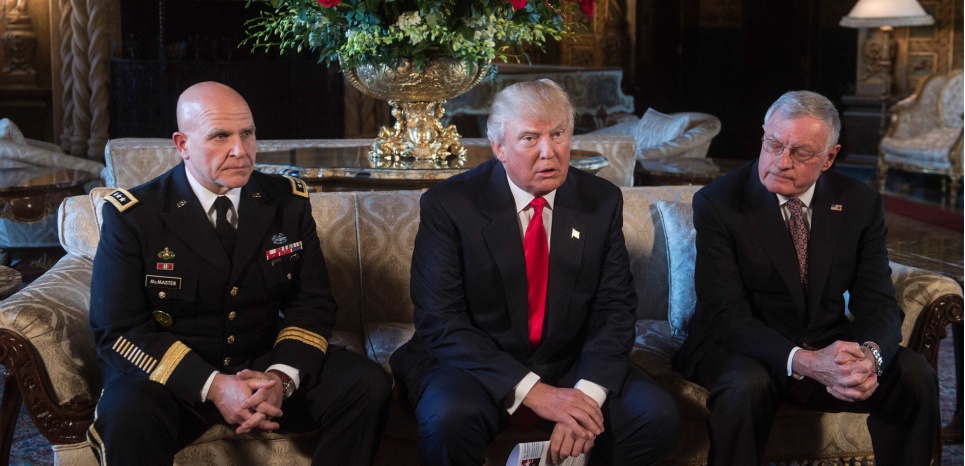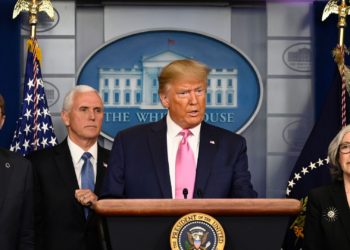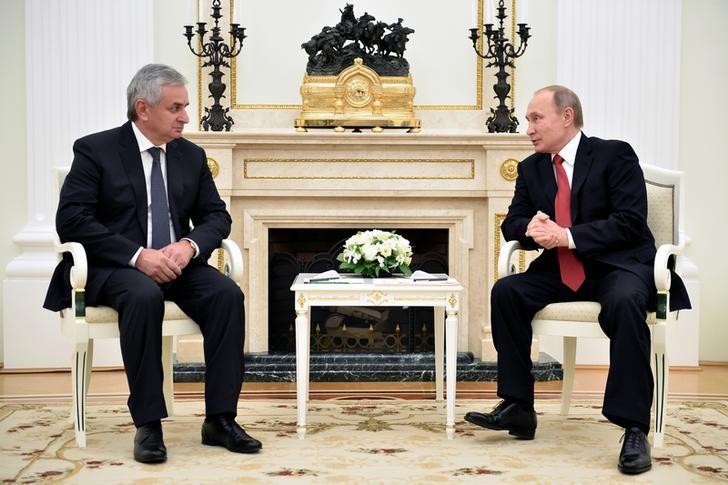Conventional wisdom says that too much of anything is bad for you. Lately, however, it is becoming more and more obvious that President Donald J. Trump has either never heard of the expression or chose to ignore it completely.
The Trump administration is anything but ordinary. In a short period in power, it managed to set a number of anti-records. White House Chief of Staff Reince Priebus held office for 189 days. Communications Director Michael Dubke lasted 86 days. The next candidate for the same position, Anthony Scaramucci, was out in 10 days.
While the administration officials come and go, only one institution has been able to gain a strong foothold in the Trump White House — the military. In his six months in office, Mr. Trump has appointed more generals in his administration than any president since the World War II.
On July 31, retired Marine Corps General John Kelly was sworn in as the new Chief of Staff. Mr. Kelly, who previously served as the head of the U.S. Southern Command and the U.S. Secretary of Homeland Security, reportedly brought discipline to the chaotic West Wing.
“Everyone in the White House likes referring to him as ‘General,’” former U.S. House Speaker Newt Gingrich said of Mr. Kelly as quoted by The Wall Street Journal.
Thomas Whalen, Associate Professor of Social Sciences at Boston University, told The Globe Post that the Chief of Staff is the most important position in any administration, and despite the fact that Mr. Kelly is a retired general, his appointment gives the military too much power.
“It gives the wrong signal to our allies around the world, Democratic allies,” he said.
The next day after Mr. Kelly took over the White House operations, Attorney General Jeff Sessions announced the appointment of Army General Mark Inch as the head of civilian Federal Bureau of Prisons.
Mr. Trump’s Cabinet also includes Secretary of Defense James Mattis – another retired Marine Corps General who had to obtain a special waiver to serve in the civilian position because he had only been three years out of active duty instead of required seven. In addition, Army Lieutenant General H. R. McMaster took over the National Security Adviser position after another retired Army Lieutenant General, Michael Flynn, resigned.
Mr. Whalen reminded that as a teenager, Mr. Trump attended the New York Military Academy, where he apparently thrived. It was a defining moment for him.
“I think he always associates himself with the military, even though he has never served officially in uniform,” he noted. “He is comfortable with generals and military people who follow his orders usually without questions.”
Back in April, Mr. Trump gave the Pentagon the authority to call its own shots and set troop limits in Iraq and Syria. The move empowered the Defense Department and commanders on the ground.
In June, Secretary Mattis was allowed to decide himself whether more troops should be sent to Afghanistan.
Mr. Whalen called the tendency alarming: “It kind of undermines the entire concept of our constitutional system, which is civilian control of the military,” he said.
However, there may be people who appreciate the fact that Mr. Trump, known for his temper tantrums, has distanced himself.
“In a normal presidency, one would worry about the president taking such a hands-off approach to significant military actions. But Trump is not a normal president. There will be few observers who think the country’s values or interests are better protected when he is directly involved in decisions,” Paul Quirk, Phil Lind Chair in U.S. Politics and Representation at the University of British Columbia, told The Globe Post.
Mr. Trump’s proximity to the military will likely have an impact on how the White House makes policy decisions, including on the international arena.
The U.S. has to deal with multiple crises at a time, with the situation on the Korean Peninsula requiring a particularly prompt reaction.
Michael Corgan, Associate Professor of International Relations at Boston University, warned that it is completely wrong and self-defeating to think that once a war starts the politicians should get out of the way and leave things to the generals.
He told The Globe Post that the situation in Iraq shows what happens if the Pentagon calls the shots.
“State was left out and the Pentagon had absolutely no plan for what to do after [Iraqi President] Saddam [Hussein] was defeated and his forces checked on the battlefield. 14 years later we are still there with a mess on our hands and Iraq is farther from being a country than it has ever been,” he stated, noting that “It’s not so much civilian control over the military as it should be political control.”
Mr. Corgan underscored that the most senior military commanders must always be aware of the political dimensions of what they do. He quoted Prussian general and military theorist Carl von Clausewitz, who said “no one starts a war, or no one in his right mind ought to, without being clear what he intends to achieve by that war and how he intends to conduct it.”























